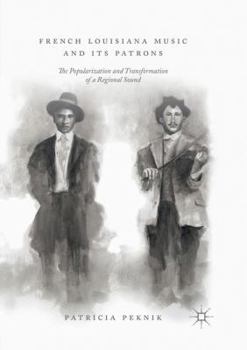French Louisiana Music and Its Patrons: The Popularization and Transformation of a Regional Sound
Select Format
Select Condition 
Book Overview
French Louisiana music emerged from the bayous and prairies of Southwest Louisiana in the late nineteenth and early twentieth centuries. Pioneered by impoverished Acadian and Afro-Caribbean settlers, the sound is marked by a high-pitched fiddle playing loud and fast above the bellow of a diatonic accordion. With lyrics about disaster and heartache sung cheerfully in a French dialect, the effect is dissonant and haunting. French Louisiana music was largely ignored in mainstream music culture, except by a handful of collectors, scholars, and commercial promoters who sought to popularize it. From the first recordings in the 1920s to the transformation of the genre by the 1970s, the spread of this regional sound was driven by local, national, and international elites who saw the music's traditions and performers in the context of larger social, political, and cultural developments, including the folk revival and the civil rights and ethnic revival movements. Patricia Peknik illuminates howthe music's history and meaning were interpreted by a variety of actors who brought the genre onto a national and global stage, revealing the many interests at work in the popularization of a regional music.
Format:Paperback
Language:English
ISBN:3030073548
ISBN13:9783030073541
Release Date:January 2019
Publisher:Palgrave MacMillan
Length:223 Pages
Weight:0.63 lbs.
Dimensions:0.5" x 5.8" x 8.3"
Customer Reviews
0 rating





